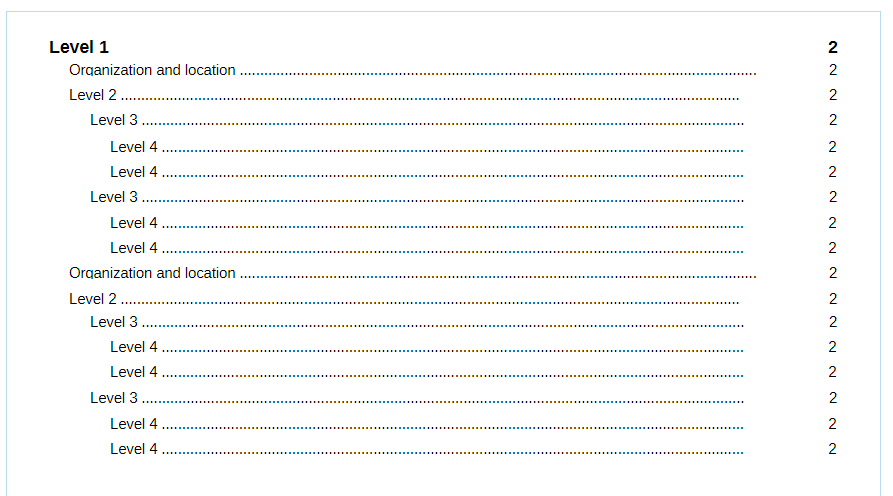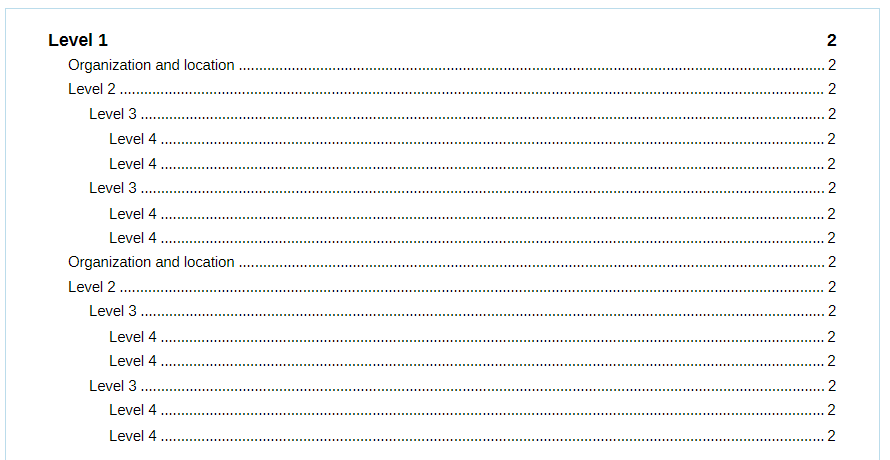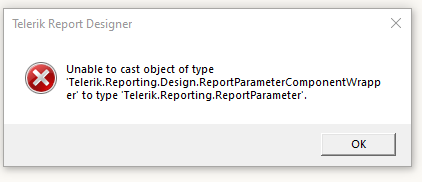I would like to have truly bitwise operators for my expressions. Here is my scenario.
I have a bitwise flag in my dataset which defines the status of a value. It can have up to 15 possible values set as true in one field. The issue is, that there doesn't appear to be any way that I can perform a check in my expression.
I don't want to add 15 additional columns to my dataset that explicitly set these as true as that's total overkill.
The Logical/Bitwise operators article details that there are "bitwise" operators, but these are logic only. This forum post confirms this.
The Uri user function can be selected from the functions list in the expression editor of the designer but when the report is previewed the following error message is shown.
The expression contains undefined function call Uri()
Hi Team,
I would like to request that the rotate CSS attribute be added to the HtmlTextBox.
Thank you!
I export the same TRDP report that embeds a Bitmap image on Windows with GDI and on Linux Docker Container.
The result PDF file from the Linux environment is much bigger than the one generated on Windows.
The following screenshot demonstrates what the ToC looks like when rendered with Skia on Linux.
Below is the expected result. Rendered with GDI on Windows.
Since version 21.24.305 of the Native Angular Report Viewer, its DateTime parameter editors do not work if the user's machine does not use the en-US culture.
The following error message is displayed in the browser console when a DateTime parameter is present.
Error: The 'value' should be a valid JavaScript Date instance.
at DateInput2.verifyValue (dateinput.js:1057:19)
at DateInput2.writeValue (dateinput.js:1051:14)
at DateInputComponent.ngOnChanges (progress-kendo-angular-dateinputs.mjs:10036:22)
at DateInputComponent.rememberChangeHistoryAndInvokeOnChangesHook (core.mjs:4101:14)
at callHookInternal (core.mjs:5136:14)
at callHook (core.mjs:5167:9)
at callHooks (core.mjs:5118:17)
at executeCheckHooks (core.mjs:5049:5)
at selectIndexInternal (core.mjs:11023:17)
at ɵɵadvance (core.mjs:11012:5)
Text boxes formatted with the 'en-US' culture and '{0:C}' format do not use the correct currency negative pattern in .NET Core.
For example, a field with a value of -2.55 should be formatted to '($2.55)' but instead it is shown as ' -$2.55'
When we add text with an Underlined font, it will be added as an extra embedded subset next to the same Normal/Bold font, which makes the files bigger.
This may be a major issue with large fonts such as Arial, as they get embedded twice in the PDF.
The getReportParameters method of the HTML5 Report Viewer omits parameters with unset values that have their AllowNull property set to False.
The reportSource method of the HTML5 Report Viewer can be used as an alternative.
The WPF Report Viewer should support rounded corners.
Currently, I am not allowed to do the following:
<telerikReport:ReportViewer Grid.Row="1"
Grid.Column="1"
Name="reportViewer1"
ReportSource="{Binding ReportSource}">
<telerikReport:ReportViewer.Resources>
<Style TargetType="telerikReport:ReportViewer" BasedOn="{StaticResource {x:Type telerikReport:ReportViewer}}">
<Setter Property="BorderBrush" Value="{telerik:Windows11Resource ResourceKey=PrimaryBorderBrush}"/>
<Setter Property="BorderThickness" Value="1"/>
<Setter Property="Margin" Value="5"/>
<Setter Property="CornerRadius" Value="4"/>
</Style>
</telerikReport:ReportViewer.Resources>
</telerikReport:ReportViewer>
Clicking on the Value property of a Report Parameter from the Report Explorer in the .NET Standalone Report Designer throws the following error:
The issue is not present in the Standalone Report Designer for .NET Framework.
Good afternoon,
As per support ticket 1650746, could I please request that Telerik reporting could one day work with minimal APIs as opposed to controllers?
There is also the dependency on Newtonsoft for the JSON side of things. Up until trying to implement reporting, I had removed the Newtonsoft nuget package and was trying to use System.Text instead throughout my project. Perhaps in time, it could be a bit more agnostic when it comes to the provider.
Many thanks,
Rawden.
When a report contains multiple DateTime parameters, the viewer assigns the first value to all of them regardless of their default values or the values passed in the viewer's report source.
Additionally, if one clicks the preview button quickly after changing the value of a DateTime parameter, the old value is passed to the service even though the parameter editor is updated. To avoid this, the user needs to wait a second before previewing.
When testing integer values outside the range of System.Int32 (-2147483648 to 2147483647) for a multi-value integer parameter, I started to get the error:
An error has occurred while processing Report '___': Cannot perform '=' operation on System.Int32 and System.Int64.
I narrowed this down to the "In" and "Between" operators. For example, the expression evaluating a literal integer value against the multi-value parameter:
= 0 In Parameters.IntegerMultiVal.Value
It appears that the literal integer is being converted, internally, to Int32 and compared against the contents of the multi-value parameter as Int64 - though the error only occurs when a value outside the Int32 range is present.
Direct comparison to a single parameter value outside the Int32 range appears to work fine:= Parameters.IntegerSingleVal.Value = 0
= Parameters.ZeroVal.Value In Parameters.IntegerMultiVal.Value
This was tested and reproduced in the HTML5 report viewer and the standalone report editor.
The HTML5-based report viewers use the following navigation icons.
- Arrow with a line to navigate to the next/previous page.
- Double arrows to navigate to the first/last page.
This is unintuitive and inconsistent with the desktop and native report viewers.
The navigation icons should instead be:
- Single arrow to navigate to the next/previous page.
- Arrow with a line to navigate to the first/last page.
When I render one of my reports I receive the error message “A generic error occurred in GDI+”.
I figured out that one HtmlTextBox receives quite a long HTML from the data source - exceeds 32 768 characters. In my experiments, the error starts appearing if the text is longer than 32 775 chars.
In this case, the Reporting engine shouldn't throw a misleading GDI+ error but instead throw a more specific exception.
If you set the WinUI viewer's ViewMode to PrintPreivew in the XAML or the code, the toolbar button's state and value don't change. Hence, even though the report is displayed in PrintPreview, the button for switching the ViewMode is still showing 'Switch to PrintPreview' and is not highlighted. When you click it, the report is displayed in Interactive View, the button becomes highlighted and the tooltip states 'Switch to Interactive mode'.
The WebServiceDataSource wizard in the Web Designer doesn't let you construct Expressions for the Parameter values. The same functionality is present in the Standalone Report Designer.
The SqlDataSource Wizard of the Web Designer also allows the creation of Expressions for the Parameter values.
It would be convenient if the report creators were allowed to create the Expressions for WebServiceDataSource parameter values directly in the wizard. Currently, you need to type or paste the Expression manually.





